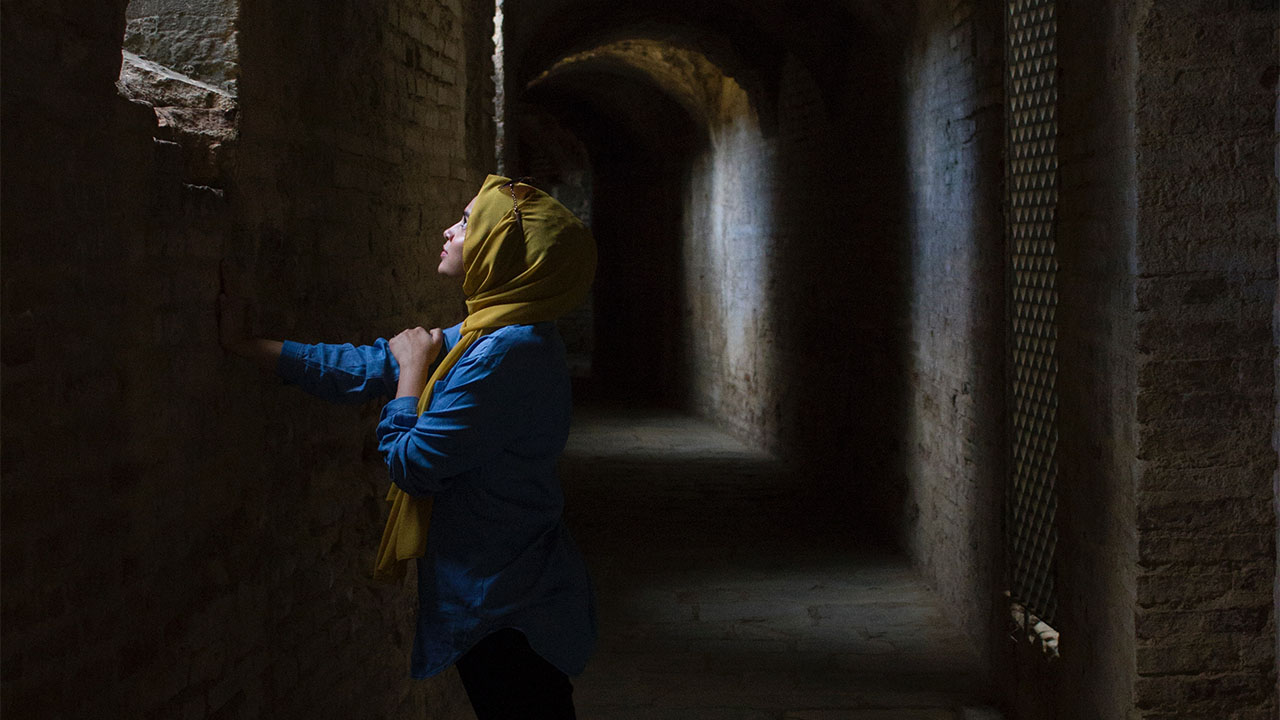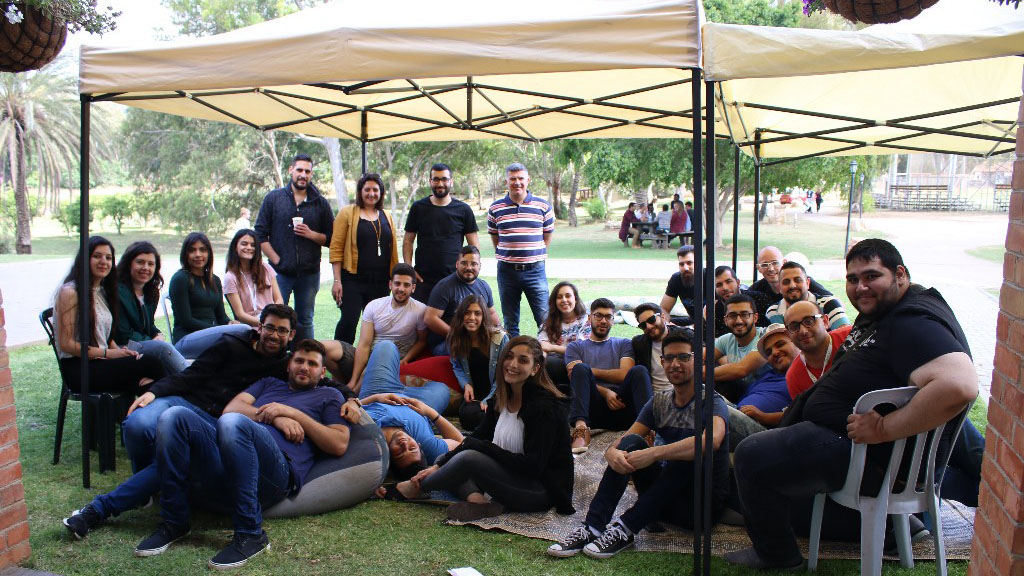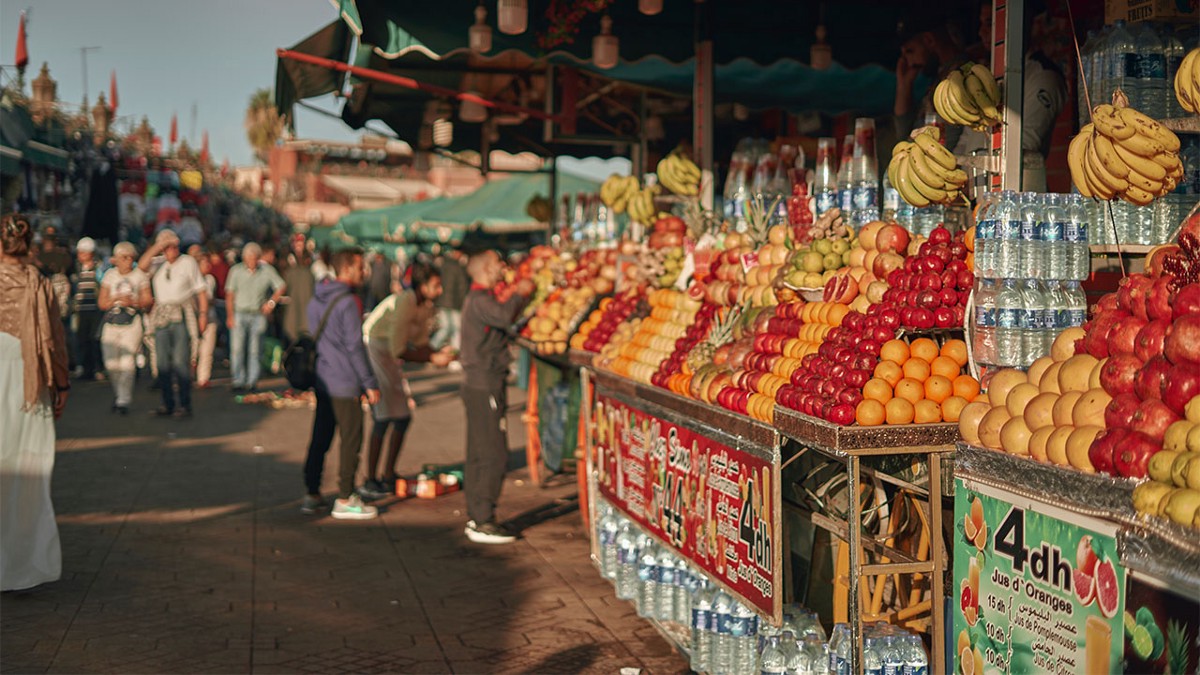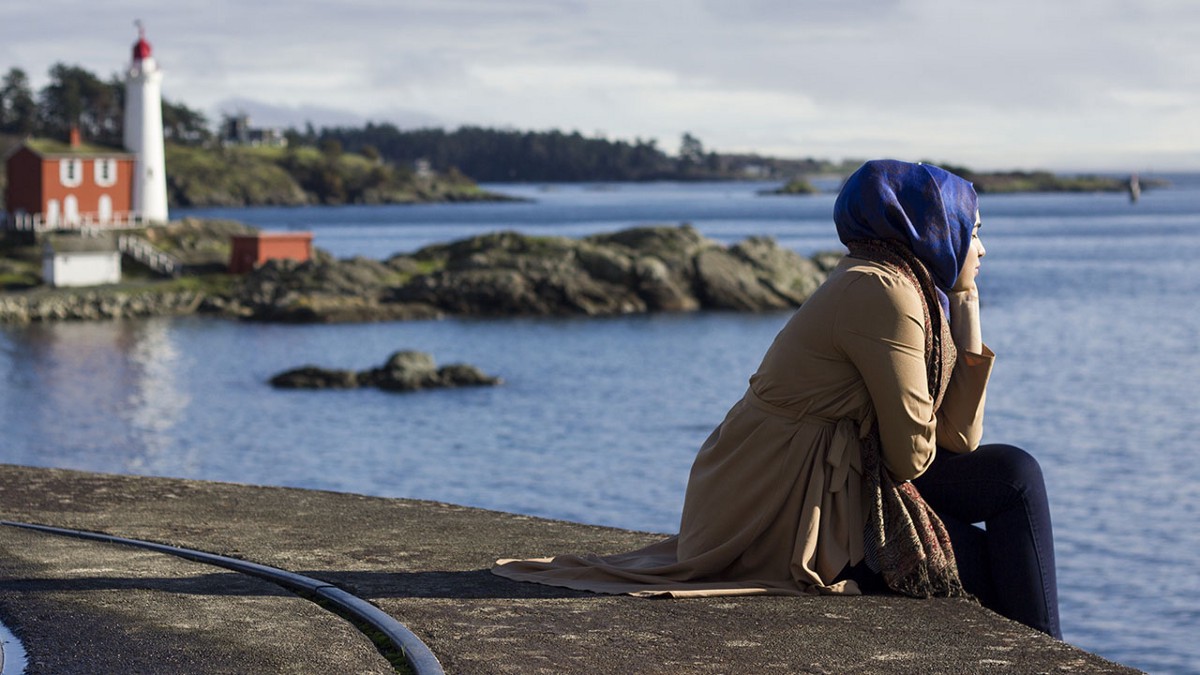Region / Country: Middle East and North Africa
Egypt
Iraq
Israel
Jordan
Kuwait
Why I keep serving students in Syria
Haya* lives in Syria. She trained as a dentist, but life has not turned out as she expected. The war has changed everything. We asked her to share her story.
Trusting Jesus in the darkness
I witnessed the death of many young men, women, and children all around me in every corner of the city. My father’s house and my dentistry clinic have been bombed several times, and it pushed me to think seriously of closing down my clinic and emigrating to another country. But God in His mercy closed every possible door of emigration. I heard Him saying: “It’s Me; do not be afraid”, just as Jesus told the disciples when they saw Him through the darkness, walking on the water towards them in the boat.
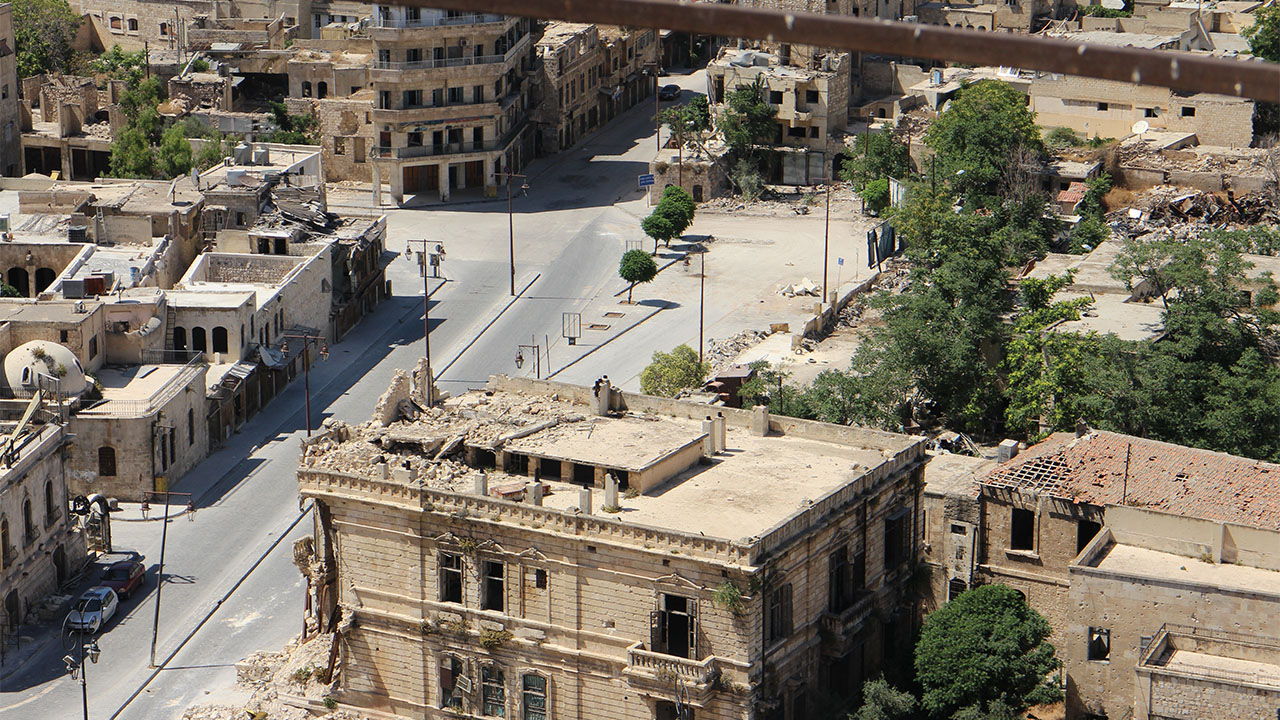
Photo by aladdin hammami on Unsplash
The darkness of the war in recent years has created many catastrophes, and I felt God’s call to do something. I knew that in the middle of the darkness there is a real need for those who carry the true light of Christ.
I cried out to God and told Him:
“I am Yours! I believe in You, and I am waiting on You even in the middle of death, the loud voice of bombs and the threats of kidnapping. You know that I am a mother and a wife, and it is my right to look for a safe place for my family. But I do not want to be in a place where You do not want me to be.”
The jar and the treasure: hope for the harvest
During that time of hardship, God’s Word was my lighthouse, the place where I ran to find encouragement. Every time I read it, He was clearly telling me that I am a clay jar that holds His most precious treasure. I have discovered that the secret of surviving is in the treasure and not in my weak clay jar.
I have lived all my life in a country where it is really difficult to serve as a woman in a man’s world – even in ministry. But I was surrendered to God’s will. The Bible clearly emphasises the vastness of the harvest. Convinced of this truth, looking for lost sheep outside the church and bringing them into the church became my goal.
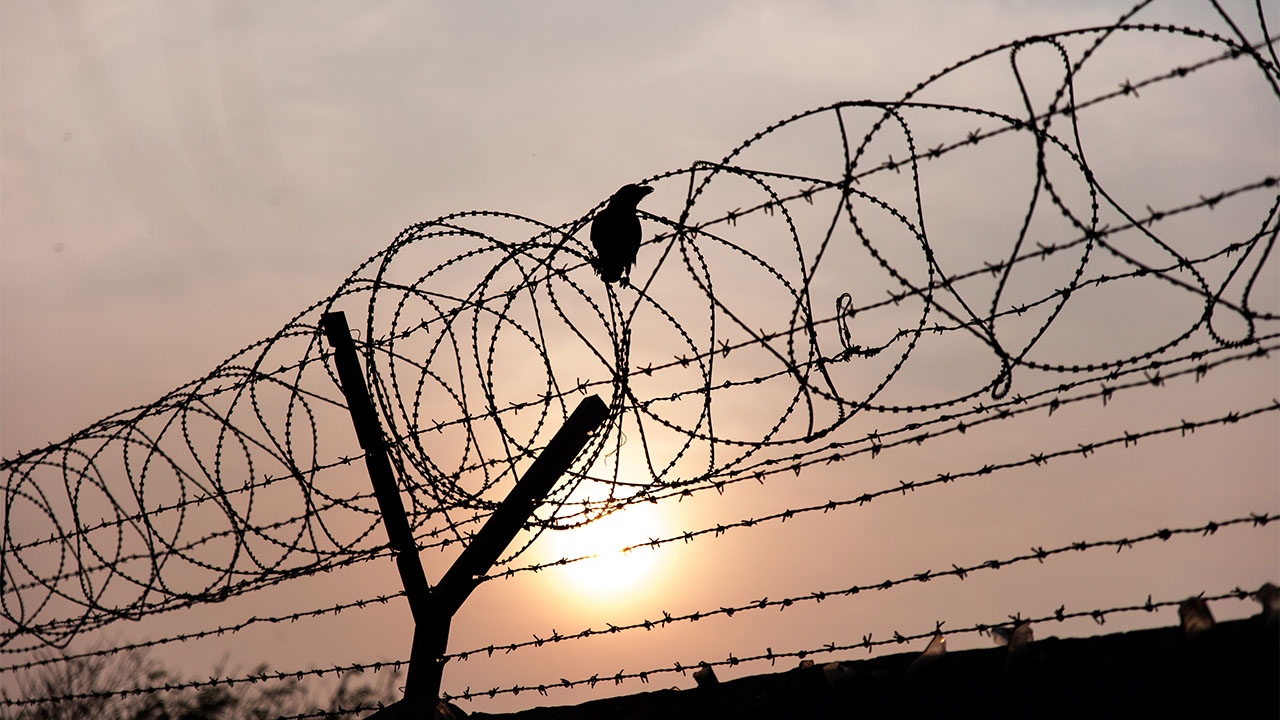
Photo by Patrick Hendry on Unsplash
Open doors
God opened doors for me to serve with university students, in addition to my ministry of counselling, and offering post traumatic support for those who have survived the war. The ministry has grown to include most of the cities in this country. We financially support and counsel battered war victims – mostly women, teenagers and children.
The Lord has blessed us in recent years even though it was very dangerous to serve. We had many conferences and gatherings, and He has protected us. I see the fruits of this ministry in the young men and women who have come to know Christ in a personal way, and they are now helping me with the ministry. When people are truly satisfied in their relationship with God, the course of their lives changes from looking inwardly for satisfaction, to investing their lives in serving others as their Lord did.
Keeping going in the battle
I believe that God called me for this great work of His, and I am determined to continue as He leads. God is present in unsafe places as well as safe places. I have faced many hardships throughout my years of ministry. Sometimes I have felt sorry for myself; I have wanted to withdraw from the ‘battle’ just as Elijah did. But I am thankful for my Saviour’s love that has sustained my journey.
*name changed
Middle East and North Africa
When the least-reached encounter Jesus
We met in the supermarket. Sahib* had come to Eastern Europe as a post-graduate from the Middle East, to study engineering. He started coming along to our club for international students. Then one day Sahib heard about our IFES national conference coming up. He wanted to come too.
“This club is for students of different backgrounds and beliefs,” I told him. “But the conference is for Christians.”
But Sahib came anyway. The only Muslim out of nearly 200 Christians. During those three days he heard the gospel preached over and over. He even came to a talk about sharing the gospel with Muslims! What on earth is he going to think? I wondered nervously. But at the end of the conference, Sahib shared his story with me:

Sahib’s story
Several years ago, Sahib’s brother had died tragically in an accident. His father, who never recovered from the grief, died six months later. Sahib’s nephew (his late brother’s son) went to live with him and his family. Then last year, while working in a military camp, he and his nephew were just metres away from the explosion of two ISIS cars. Sahib miraculously survived, but tragically, his nephew didn’t. Having lost three of his closest family members, Sahib sunk into a deep depression. He wondered why he was still alive. In desperation he had decided to move overseas to study again.
But then at the conference, he told me, something had changed. He’d suddenly felt the darkness and depression lift. He felt like he’d woken up. “It’s not an accident that you’re alive today, Sahib”, I told him. “I believe God saved your life for a reason.”
Soon after that, Sahib joined his local IFES group and has started going along to Bible studies and church services. Sahib still hasn’t accepted Christ, but we believe that God is at work in him.

Kasim’s dilemma
The decision to become a Christian has huge implications for Muslims. It might not be possible for them to return to their family or home country. If they do return, they could face extreme persecution, a serious lack of fellowship, and limited opportunities for career and marriage, as well as painful rejection from family members. It’s not appealing — and yet, to leave the people you love behind…? This was Kasim’s* dilemma.
Kasim is from Central Asia. Every international student from his particular country is monitored closely during their time overseas, and when they return their phones and luggage will be checked. While studying overseas, Kasim met Christians, got involved in our international fellowship group and started reading the Bible privately with a local pastor. Wonderfully he turned to Christ, and soon after got baptised in secret. Despite the dangers, he started to share the gospel with his friends in his dormitory. Then came a turning point.
Kasim had a dream to move to a western European country to do a Master’s degree. He’d even been studying the language of that country! But increasingly he felt convicted that he had a responsibility to go back to his home country and tell his people about the most important gift he had found here. If he moved overseas again then who would tell his people about Jesus?
So now Kasim is back in his home country, completing his obligatory service in the army. Praise God that, so far, he is doing well spiritually. We pray that in the future he’s able to help pioneer student ministry in his country.

Unparalleled opportunities
The opportunities currently open to us across Eastern Europe are unparalleled. Students from 17 different countries attended our Christmas evangelistic event. Many of them are from desperately unreached places. Our own context is not without its challenges, but it is more open here than it is in many of these sending countries.
Each week we organise activities where international students can come and socialise together, enjoy friendships in a safe environment, learn about local culture, discuss different topics, improve their language and, if they are keen, open the Bible with us. We pray on that many more students in this generation would, like Kasim, come to know the Lord.”
Reflections from an IFES staff worker serving students in Eastern Europe

Open Doors records the persecution of Christians in its World Watch List. The ten countries where persecution is the most severe sent a total of 220,647 students to study internationally in 2016, according to UNESCO statistics. Pray with us that these international students would meet Christians, hear the gospel during their time studying overseas, and return home to share their faith with those living in darkness.
* name changed
Should I return home?
It’s wonderful when international students turn to Christ. But that is only the beginning. Many face huge challenges when they finish their studies — particularly those who come to faith from a Muslim background. It’s an agonising decision: stay here, in a foreign land, apart from their loved ones; or go back and face a life of alienation, rejection and severe persecution — or even death. There is no easy option.
Rahab Chandler, an international student worker in the UK, shares two stories of Muslim-background believers who came to faith during their PhD studies.
Hadija’s journey
Hadija* and I met through a mutual friend. She was from a Middle Eastern country, studying here for a PhD. I invited her to our home and to one of our international cafés, and introduced her to a few Christian friends. Over the course of the next few years, Hadija and I met regularly. She was only culturally Muslim but was nevertheless committed to certain Islamic beliefs. We would talk at length about her studies and I would share with her what the Bible says regarding the issues. Her interest grew, but she showed no desire to embrace the Christian faith.

Over time she began to attend church, where she heard good teaching and was drawn into the church community. Things started to change. Our weekly talks together deepened. I could see how close she was. One Sunday, on hearing a talk about the second coming of Christ, she could not hold back any longer. She professed her belief in the gospel and her desperation to be put right with God. Hadija was baptised a couple of months later, pleading with others to put their trust in Christ as she shared her moving testimony.
Where do I belong?
Hadija has grown wonderfully. But she has not yet told her family about her new faith. Her concern is more for them than for herself. She knows that if her wider family were to find out, her immediate family would be in danger. She says that she is willing to die for Christ; but what is hardest is that her family would suffer for something that they do not understand. Aside from the physical danger, there is also the issue that if she were to return, she would be obliged to marry a Muslim. Even if her life was spared, without Christian fellowship, it would be very hard to keep going.

For Hadija, not returning at this stage is wise. Thankfully her parents are supportive of her remaining in the UK; they believe she will have more freedom here and are not pressurising her to return. Perhaps they have guessed about her new faith, as they know that her friends are Christians. Hadija needs a job which will keep her in the UK for a few more years so that she can then apply to live indefinitely in this country. God has provided for her so far and we trust that He will continue to do so.
But it’s very hard. She loves her family and misses them. The reality of long-term separation from them can never go away. She has struggled with depression. Hadija is afraid that her faith will become known among others from her country, so she has limited her friendship group to a few, most of whom are older than she is. She doesn’t feel that she truly belongs here, even with those of us who are very close to her.
For Hadija, there are no easy answers or quick fixes.
Omari and Sariya
For some, returning home is possible and is the right option.
PhD student Omari* and his wife Sariya* came to the UK from a Middle Eastern country. Omari had long-since moved from Muslim belief to atheism, disillusioned by his Islamic upbringing. He is a confident man and was quick to engage with his work colleagues. He also started coming along regularly to one of our international cafés, looking for friendship. Articulate and convinced in his atheism, Omari was not over-keen to hear about the Christian faith but was always ready for a discussion.

Sariya was still a practising Muslim but on a gentle level. We met her when she came along to an activity for the wives of international students. Through that group, Sariya’s friendships with other Christian ladies started to grow. After a number of months without showing spiritual interest, she mentioned one day that her husband was now keen to study the Bible with Christians. They began to meet with a local couple to go through the Al Massira course — Bible overview studies specifically for seekers from a Muslim background.
In time, both came to clear faith and were baptised discreetly. They were well discipled by a local Christian couple and started to prepare to return home. Those close to him helped them to think through how they could express their new faith wisely, and what it would look like to be loving and faithful family members. They also talked about suffering for their faith.
No turning back
Omari and Sariya are now back home in the Middle East. So far, they are doing well. For the first year, they were very cautious with their family, but they behaved wisely: while they were not explicit, it became clear that their faith had changed. At first, they were wary of meeting with local believers, and only attended an international church run by ex-pats. God provided them with a local ex-pat couple who came alongside them, meeting regularly with them for Bible study. After a couple of years, they began to engage with a small fellowship of local believers and seekers. They are now very involved in this, and Omari preaches there regularly.

The couple who were their main disciplers in the UK continue to support them, as do some others. Some members of their family know the whole story and have even expressed interest themselves. Others remain safely ‘ignorant’ of Sariya and Omari’s change of faith. Returning home has not been easy, but at the moment it seems to be working well enough: they continue to stand firm, growing in their faith and service.
Surrogate family
These stories are a source of deep encouragement. Let us rejoice that international students are coming to faith from a Muslim background! Let us thank God that they consider Jesus worth giving up everything for.
At the same time, these stories are sobering. Hadija, Omari and Sariya do not have the support of their own families. All of them are, to a degree, isolated. They face huge challenges in their daily lives and need great wisdom in navigating the path of bold witness and wise caution. For them, support from church family is indispensable. Are there believers from a Muslim background in your church or student group? What’s their story? How could you support them and be their surrogate family? They will need your friendship, love and prayers very much indeed.
*name changed
